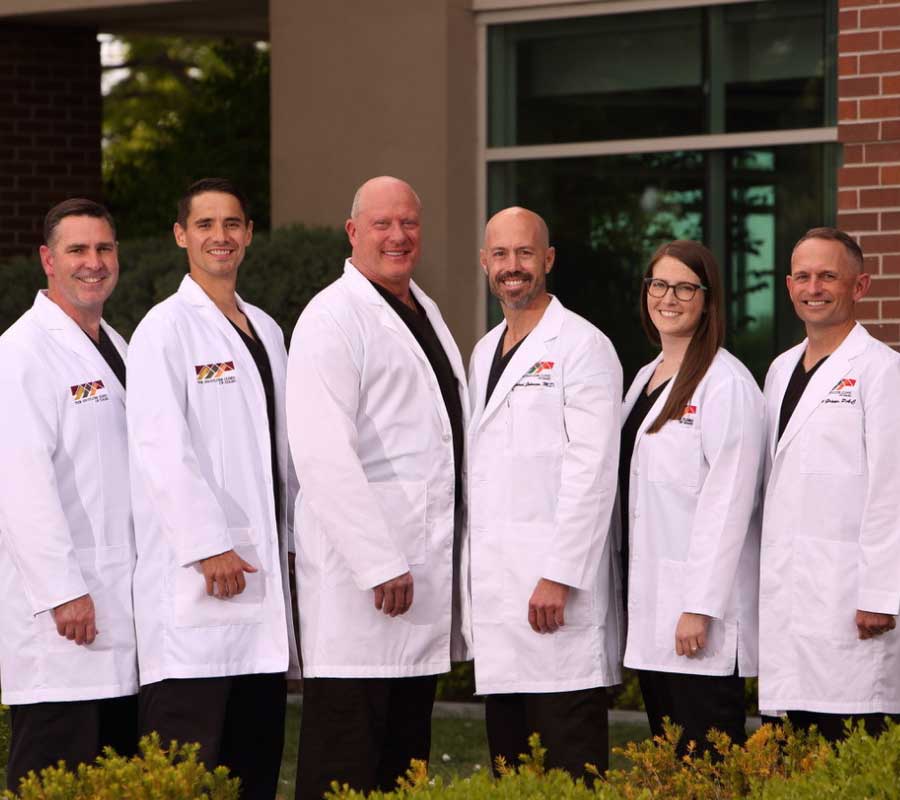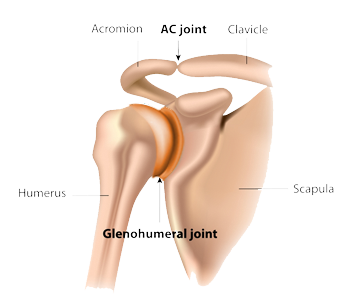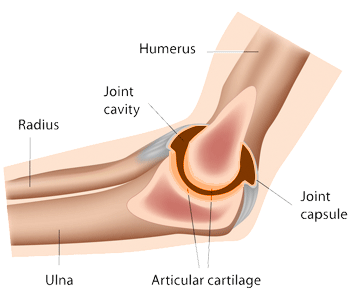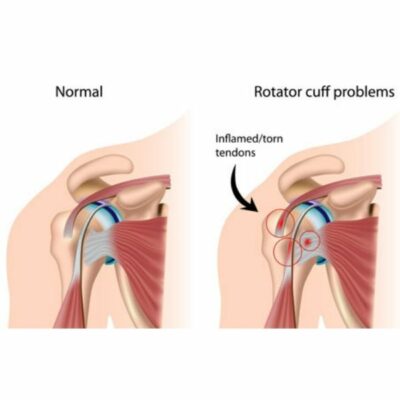Rotator Cuff Tear Specialists

Are you an athlete who participates in sports that involve throwing overhead? If so, you may be at risk of sustaining a rotator cuff tear. A rotator cuff tear is typically caused by a fall, sports injury or degeneration. The rotator cuff tear specialists at Shoulder Clinic of Idaho provide diagnosis and both surgical and nonsurgical treatment options for patients in the Boise area who have sustained a rotator cuff injury. Contact the Shoulder Clinic of Idaho team today!
What is a rotator cuff injury?
The shoulder joint offers more flexibility and motion than any other joint in the body. Inside the joint, a group of four muscles and tendons cover the top part of the humerus (arm bone) keeping the bone firmly in place within the socket of the shoulder. The rotator cuff is flexible and makes it possible to bend, stretch and rotate the arm. It also contributes to shoulder stability. Due to its flexibility and use, it is not uncommon for the rotator cuff to be injured or torn. A rotator cuff injury can occur in both younger and older patients and can become symptomatic when patients perform continual overhead arm movements. Rotator cuff tears and rotator cuff tendonitis can also occur in patients who are not involved with overhead or heavy physical labor, and can occur simply by the natural aging of the tendon. Sports injuries, falls, or accidents can also cause a rotator cuff injury. The shoulder specialists at The Shoulder Clinic of Idaho commonly diagnose and treat rotator cuff injuries for patients in Boise, Meridian, Nampa, and surrounding communities of the Treasure Valley, returning them to their active, pre-injury lifestyle.
What is Shoulder Tendonitis?
A rotator cuff injury can occur when any of the four muscles or tendons making up the cuff become damaged or injured. Tendonitis is the term used when there is inflammation of the rotator cuff tendon and the bursa within the shoulder. Patients who perform repeated motion can be susceptible to developing rotator cuff tendonitis, or tendinopathy, as a result of stress on the muscles and tendons of the rotator cuff.
What is the difference between a rotator cuff tear and tendonitis?
Rotator cuff tears and rotator cuff tendonitis feel similar for an injured patient; there is pain in the shoulder joint, especially when lifting or rotating the arm. Daily activities such as dressing can become difficult and painful. Night pain and difficulty reaching behind one’s back are common findings. A rotator cuff tear is when the muscles and tendons are pulled or torn from their position on the humerus; tendonitis is the irritation and inflammation of the rotator cuff tendon and surrounding tissue, commonly called bursitis. Untreated tendinopathy can lead to a rotator cuff tear and should be evaluated by the specialists at The Shoulder Clinic of Idaho.
What causes a rotator cuff injury, tear or tendonitis?
There are many causes of a rotator cuff injury:
- Age – As we age, muscles and tendons lose their strength and flexibility. The body naturally decreases its internal ability to heal and regenerate and it becomes easier to damage the shoulder area. Pain from tendonitis or a torn rotator cuff can develop overtime, gradually worsening the longer the injury goes untreated. Age is the most common cause of rotator cuff tears and tendonitis.
- Overuse – The most common activity associated with shoulder symptoms is overuse, especially overhead motions that are repeated. Gymnasts, swimmers, weightlifters, golfers, tennis players, throwing athletes, and other sports participants may be more susceptible to tendonitis and rotator cuff injuries. They may also be more aware of their shoulders and the symptoms produced from abnormal conditions because of their reliance on normal shoulder function.
- Injury – Shoulder injuries may be caused by an automobile accident, a fall or a sports injury. Pain from these types of injuries can be immediate and intense, causing loss of function in the shoulder. The most common presentation is the acute onset of shoulder pain associated with shoulder weakness, and the inability to raise one’s arm. If these symptoms are present in your shoulder, you should seek the advice and treatment of a shoulder specialist at The Shoulder Clinic of Idaho.
What are the symptoms of a rotator cuff tear or tendonitis?
Tendonitis pain and chronic rotator cuff tendon pain can be gradual and can worsen overtime with continued use of the shoulder joint. In contrast, an acute rotator cuff tear will typically present with sharp, immediate pain and weakness in the shoulder joint. Pain at night and shoulder pain while lifting, especially overhead is a common complaint heard by the specialists at The Shoulder Clinic of Idaho. The doctors serving Boise, Meridian and Nampa and the Treasure Valley communities will help diagnose and treat the reason for shoulder pain.
How is a shoulder injury diagnosed?
The specialists at The Shoulder Clinic of Idaho have extensive experience in diagnosing the exact cause and reason for shoulder problems. Their team will conduct a thorough examination of the shoulder along with a complete patient history to help obtain a proper diagnosis. Several important tests may be utilized to learn the extent of tissue damage including x-rays, an MRI scan or an ultrasound study.
What is the treatment for rotator cuff tears, tendonitis and other shoulder injuries?
Depending on the results of the physical exam and other diagnostic tools, the specialists at The Shoulder Clinic of Idaho may recommend surgical or non-surgical treatment.
Surgical Treatment:
Patient activity level, age and severity of injury are all important factors to consider before undergoing surgery. If surgery is recommended, the shoulder specialists at The Shoulder Clinic of Idaho will discuss the options, benefits of various procedures along with the expected outcome.
Often, a minimally invasive surgical procedure, called arthroscopic rotator cuff repair, can be used. This is where a rotator cuff tear is repaired using a series of small incisions in the shoulder. With the help of a small camera called an arthroscope, and small surgical instruments, tears of the rotator cuff tendon can be repaired without opening the shoulder. Arthroscopic surgery has less recovery time, a lower chance of infection and a quicker healing time.
Non-Surgical Treatment:
Non-surgical treatments are aimed at reducing pain and inflammation and increasing function and strength to the shoulder joint. Tendonitis may not require surgical intervention and can be treated with physical therapy, ice, heat, rest and anti-inflammatory medication.
For more information on rotator cuff injuries, tears or tendonitis of the shoulder, please visit The Shoulder Clinic of Idaho, PLLC, serving patients in Boise, Meridian, Nampa and the surrounding communities of the Treasure Valley.



